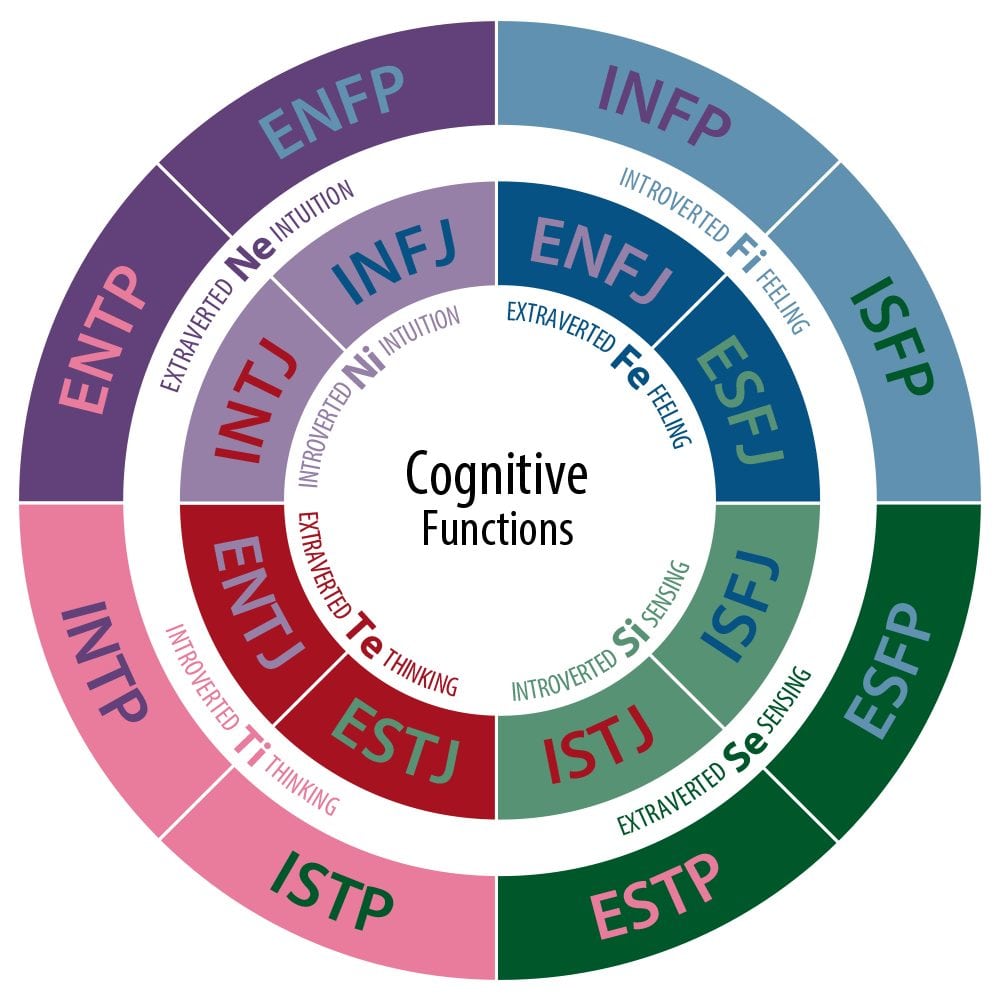Download Episode Here – right click link and select “Save Link As…”
In this episode Joel and Antonia delve deep into the world of Myers Briggs personality types and explore the deeper (and very useful) parts of the system no one is talking about.
In this podcast you’ll find:
- Myers Briggs Personality Types – Fairly accessible to everyone and is widely used in universities and companies.
- Its wide accessibility is its weakness
- History of Myers Briggs Personality Types
- Started with the work of Carl Jung who was a contemporary of Sigmund Freud. He studied archetypes, patterns of how people behaved and what made them different from each other.
- Carl Jung discovered that our minds have mental process that are a primary way of interacting with the world. The archetypes were representations of different mental processes. The behaviour might manifest itself in many ways but it’s that mental process and the way you see reality that matters.
- 8 Cognitive functions – described the primary ways people learn and understand information and the primary ways people make decisions or evaluate that information.
- Isabel and Kathryn Briggs were students of Jung and they were working on a system. These are the mental processes of your mind. How the mind sees and engages with reality. They recognized that there’s one component missing – Judging and Perceiving.
- The point of knowing your 4 letter code is meant to tell yon which cognitive functions are your favourite and indicates preferences.
- First Letter – I or E (Introversion and Extroversion). Some say that there are more introverts than extraverts
- Extraverts – the outer world is the real world
- Introverts – the inner wold is the real world.” Introverts need alone time.
- We tend to believe that extraverts are always outgoing and introverts are always shy and quiet. However, there are introverts who are very friendly and there are extraverts that are reserved and discreet.
- Second Letter – S or N (Sensing and Intuition). This is how we understand reality.
- Sensors rely on verifiable information.
- Intuitive are comfortable making leaps of habit by ‘thinking what’s behind the curtain’. They are far more interested in speculation.
- Majority of the world are sensory.
- Third Letter – T or F (Thinking and Feeling).
- Thinking – how you’re making decisions based on a thinking criteria – pieces of information that be processed and accounted for.
- Feeling – how their decision will impact other people specifically.
- All thinkers feel and all feelers think
- Fourth Letter – J or P (Judging or Perception). Most people say judging are people who are well- organized.
- Judger – they want outer world organization in order to have inner world freedom.
- Perceivers – inner world organization in order to have outer world freedom. Perceivers like to be spontaneous.
To subscribe to the podcast, please use the links below:
Subscribe with iTunes
Non iTunes Link
Download The Android App
Subscribe on Soundcloud
Subscribe with Stitcher
If you like the podcast and want to help us out in return, please leave an honest rating and review on iTunes by clicking here. It will help the show and its ranking in iTunes immensely! We would be eternally grateful!
Want to learn more?
Discover Your Personal Genius
We want to hear from you. Leave your comments below…


Share:
Podcast - Episode 0019 - Models Of Personality Development
Enneagram Personality Types (with Kelly Crowther) | Podcast 0021
6 comments
I love this series guys! :)
Do you know the NLP decision strategy?
http://www.transformdestiny.com/nlp-guide/img/tote.gif
Does the “operator” and “test” are “perceiving” and “judging”?
The operator gathers information through sensing or intuition and the test evaluate based on a set of predefined criteria which are our values that could be thinking or feeling.